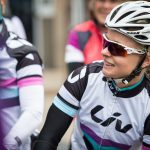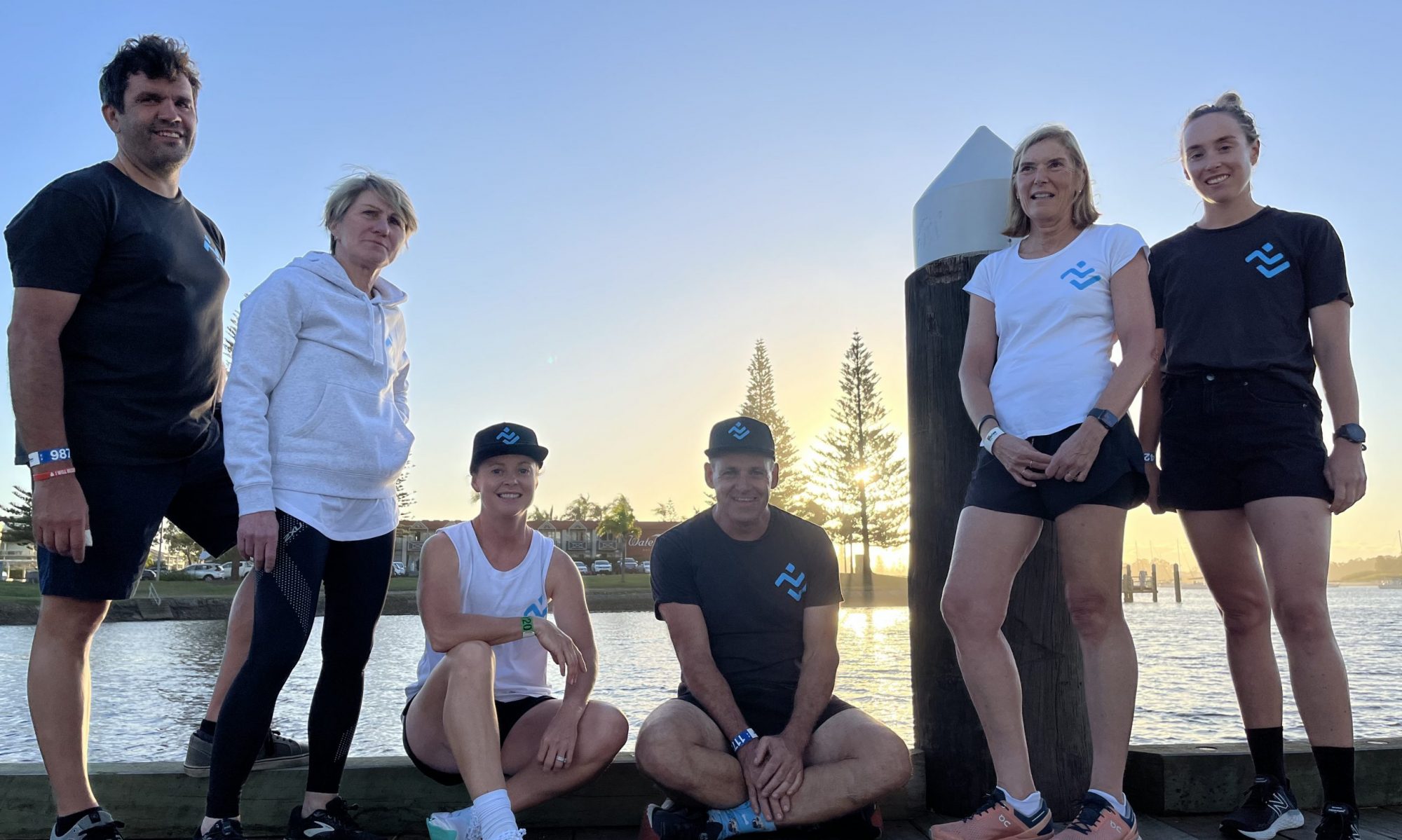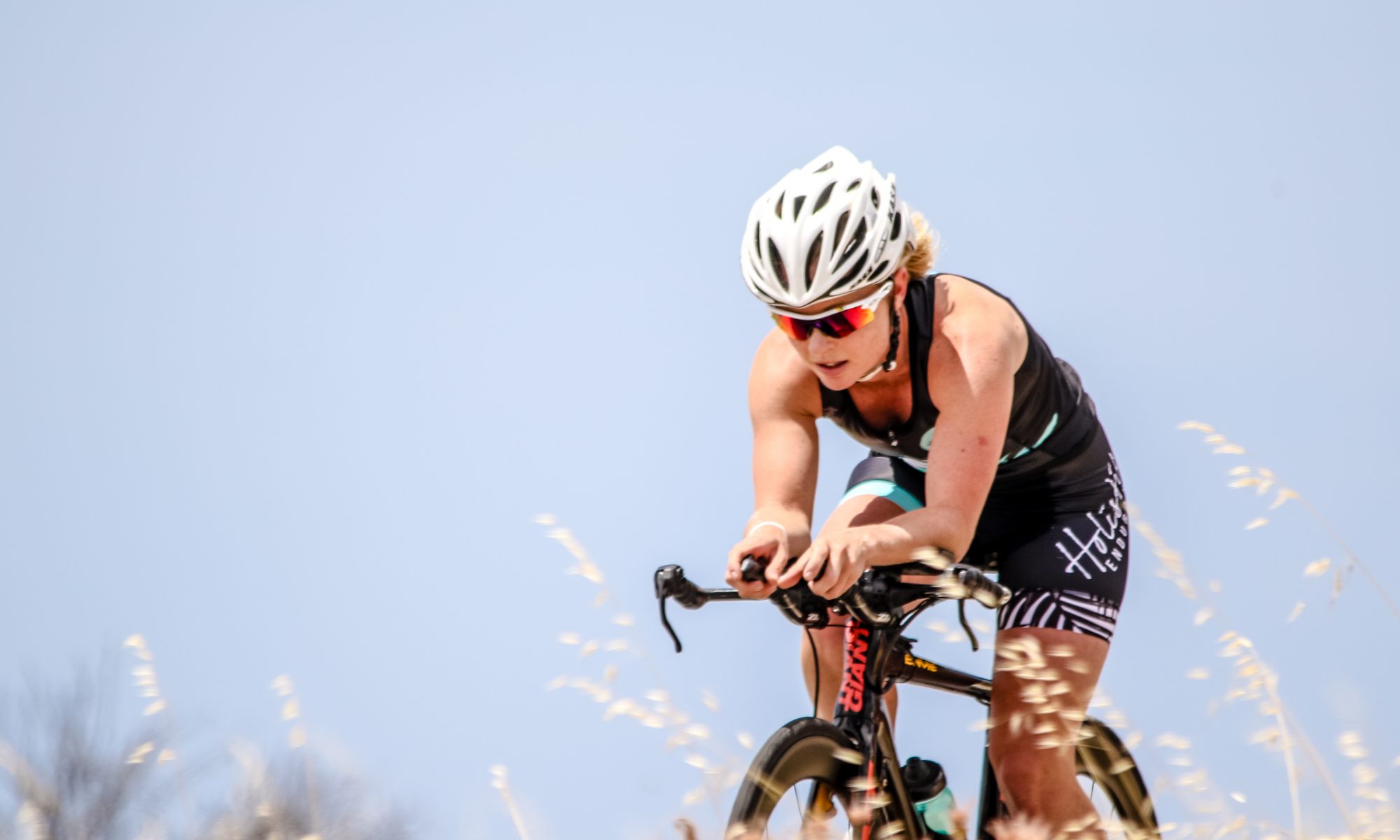SO – YOU WANT TO QUALIFY FOR KONA!
The IRONMAN World Championships in Kailua-Kona. For most triathletes it’s the main event, the pinnacle of the sport, the holy grail of long course racing. And to race there is something that many triathletes dream of, to wonder what it would be like to experience the race. To line up on the shores and take those first few strokes in Kailua Bay waiting for that canon to go off. Of riding into the distant Lava fields of the Queen K, of rounding the final bends and descent down Palani drive and finally reaching the finishing chute on Alii Drive to thunderous cheers from the crowds….
For some, this will forever remain a dream, an ‘if only’. But for others, they have the desire to make it a reality. To do whatever it takes to experience what only a small portion of the population will ever get to. You may have been trying for a few years already, or have just had an inkling of ‘maybe, just maybe’, no matter which side you come from, I’ve set out some key areas for you to review and help you understand what it may take for you to secure one of those elusive Kona Qualifying Spots – or even if it is at all possible. So read on if you want to make that dream become reality!
Find (the right) Coach
Although there are many athletes who have qualified for Kona without a Coach, if you don’t want to leave things to chance then do your research and find a qualified, understanding and knowledgeable coach. A Coach is an independent sounding board, and can help keep you focused and on track, particularly in the later part of your journey. They will help you not only physically but can be invaluable mentally. So, find one that you really connect with to gain the most from your training and get the most from yourself. The right Coach can be critical in helping you achieve your goals and finding that extra edge you may be needing – particularly if you have been close to qualifying before. Finding that last 10% of your potential can be far harder than the first 90%, so having a Coaches outside perspective who can delve deeper into your training can be the difference between heading to the Big Island, or spending another year trying.
Review your current training (and racing)
Ask yourself (and your Coach) what you can do better – or different. Start by looking at all aspects of your training and analyse where you can improve. Do you need to work on technique? Overall endurance? Improve bike skills and handling? Be more consistent? Focus more on recovery or reducing stress? Spend more time in the gym? Develop your mental game? Focus on nutrition or injury prevention? There are lots of areas to review, so take the time. Don’t skip over this and just think ‘I’ll train more’. Think about how you can be a smarter more resilient athlete and be measured and focused. Be open and honest with yourself and your Coach. To improve your overall race time or ranking is not just about training more. It’s about being specific, targeted, focused diligent and patient.
When reviewing your training, keep in mind that every athlete is individual and has different abilities to handle training loads, the number of hours we can dedicate to training, our training history, genetic make up and so much more can all vary widely from athlete to athlete. Therefore it’s important to remember not to compare yourself or your training in too much detail to your fellow competitors or training partners. What it took for one athlete to get to Kona can look vastly different to the next athlete. So focus on yourself.
Along with reviewing your training, it’s vital to review your racing – not just to see where you can make improvements, but to understand if you are executing your race plan and racing to your potential. Are your race splits and times reflective of your training? Be objective and be critical. Don’t just say ‘oh I blew up on the run, I need to run more’. Really delve deeper to understand the physiology and psychology and why it may have occurred as there can be a vast number of reasons. Did you handle the heat? Did you need heat training? Did you over bike ? Or start out far to hard in the run? Did your mental game let you done? Did you even have a race plan? Having a clear plan going into the day can help ensure you race to your potential, but also help you evaluate post-race if things don’t go to plan. A Coach can really help with this post race analyse and then the subsequent planning.
Choose the right race
This shouldn’t be something that is glossed over if you are wanting to qualify for Kona. Choosing the right race for YOU can be the difference between securing a KQ spot or not. If you are serious about qualifying, then don’t just choose a race because it’s more convenient, or your friends are racing, you need to choose a race that not only plays to your strengths but negates your weaknesses, giving you the best chance possible to secure a spot. As an example if you are a strong swim / biker and can handle variable race conditions, choose a hillier more unpredictable course. If hills aren’t your friend, choose a flatter course. Don’t handle heat well? Then don’t race where it’s known to be a hot race. Choosing the right race for you requires next to no additional physical effort to implement. Just some good planning, research and understanding.
Once you have chosen a few key races, spend the time to examine past results and researching conditions and other factors of the course. To be able to set goals and targets, it’s important to spend the time researching past results and conditions on the courses you are looking at, so you can understand the level of performance that is necessary.
The second consideration for choosing a race is considering the number of qualifying spots on offer. In some bigger races / regional championship races, spots can be as many at 75, but most now only have 40. In some age groups this means you need to podium, in others, spots may roll down to 5 or more spots. The time of year can also have an impact. Early season races mean athletes haven’t taken up spots yet, so traditionally not as many spots ‘roll down’. The later the season goes, the more chance roll down spots come up. So worth considering the time of the season you race, and/or if you have a back up race in the same season.
So take the time to choose your race carefully – it’s worth discussing the ins and outs with coaches / others who have more knowledge and understanding than you and can provide information or advice you may not have thought of. Plan wisely! It can pay off.
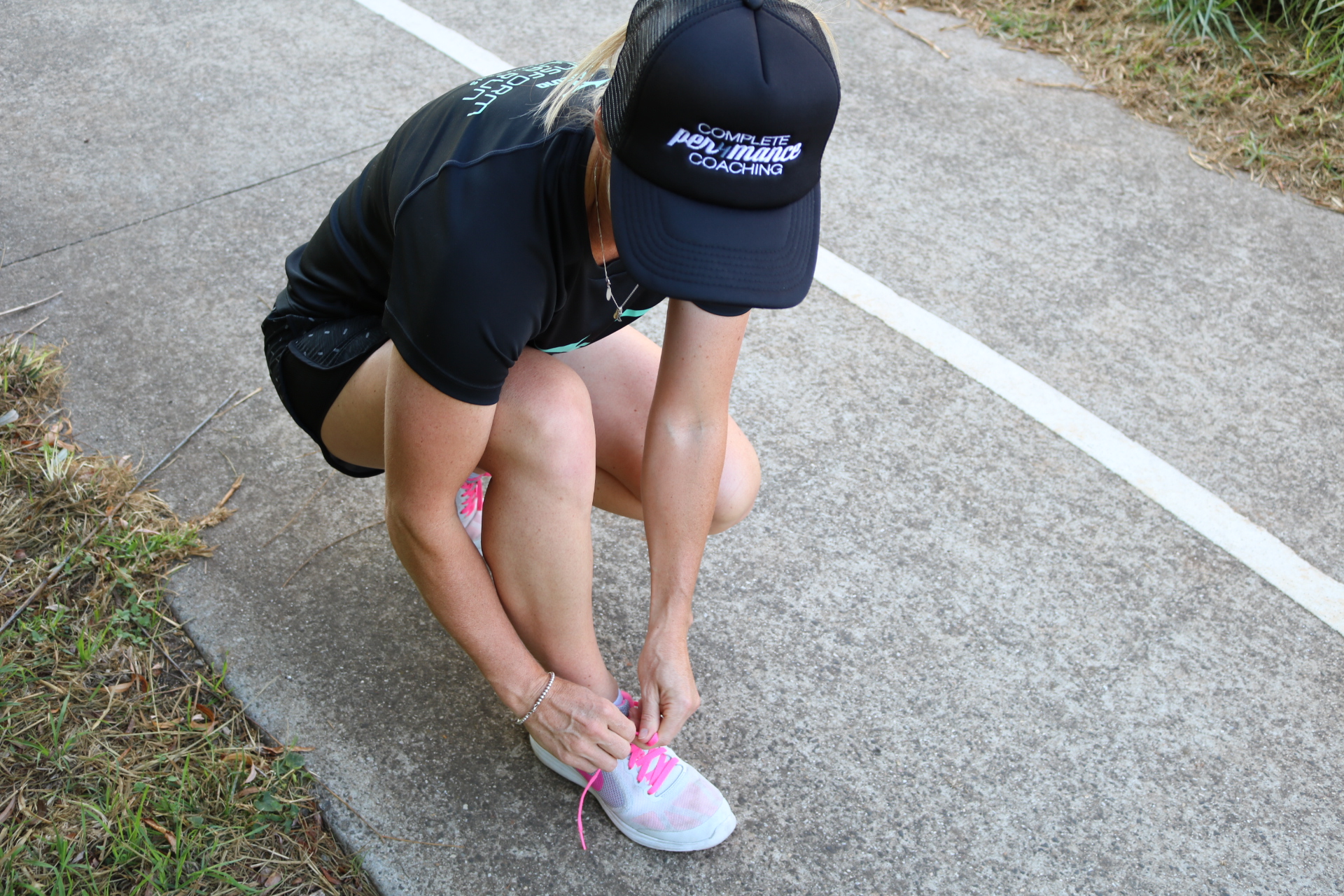
Forward Planning
Planning is key to success. It can come in a variety of forms and levels including your weekly training schedule, your training periods through the year, your racing season and multi-year planning.
This planning can take place once your review has been completed and races chosen – this way you know what you have got to work with, and the time frames it may take to get there. Once you know where you are right now and where you need to be to qualify, then you can plan out the steps to get there, and the time frame it may take to achieve.
As much as we all want results now, most of the time we need to be patient and wait for just the right time to strike. If you try and attempt a race too early, you may be hindering your chances, or even pushing back your goals if your body isn’t ready. So again be open and honest with your coach and be willing to ‘wait it out’, if that is what is needed to get you to the level that is required, rather than just shooting from the hip. Evolving as an athlete takes time, sometimes years of dedication and hard work to develop to the level required to qualify. So plan, have patience and be prepared to work hard.
Self-belief & mental toughness
This can be the glue that puts it all together and one of the most important ingredients for your Kona Qualifying success. You have to BELIEVE you are capable of qualifying for Kona. If you truly believe that you can qualify then you will act in ways that support that belief. Ironman racing is a mental game. You not only have to believe in yourself, you have to be just as mentally strong as you are physically. You must have a mind like a champion to be able to train like one and have the ability and mental strength to dig deep and hurt when the time counts – both in training and in racing.
Metal strength and the ability to push through pain barriers is something that can be developed, but it ultimately comes from experience and from passion. So get your mental game as strong as your physical game. Without it, that Kona Qualifying spot may just continue to elude you. If you have reviewed your training and racing and determined this was one of the areas you need to improve, then go in search of someone that can help you. Ask your Coach, fellow athletes, look at who the pros have worked with in the past, or strategies they implement, do your research. It will be an investment well worth making.
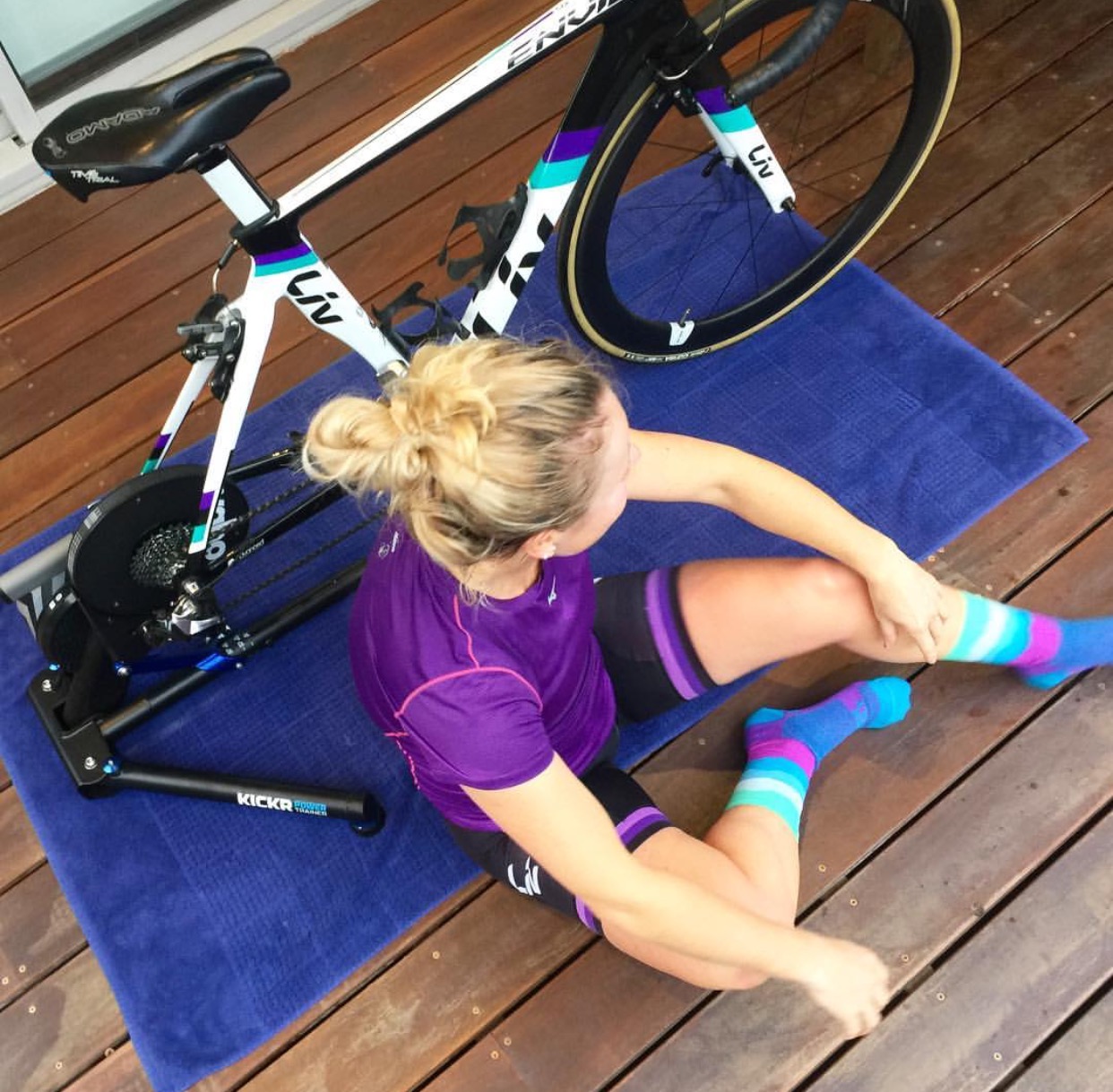
Commitment, consistency and discipline
Ultimately, the quest to qualify for Kona (or any goal for that matter) comes with commitment. And that doesn’t just mean saying flippantly “I’d love to qualify for Kona one day” – as that’s not commitment, that’s a merely a wish. BUT if you said to me “I want to do whatever it takes to qualify for Kona in X years” – well now you are talking!
So once that commitment is made it’s then up to you to focus on the consistency and be disciplined. You must be willing to make choices and sacrifices in the short term in favour of your long-term goals. Although you don’t want to make qualifying your sole priority, as there is far more to life than just triathlon, you still need to put in the work consistently and find ways to make training a priority. There’s no way around that. Whether you have natural athletic ability or not, qualifying for Kona requires a certain volume and training stress that will at times impact other areas of your life. So have discussions with those in your life this may impact and make compromises in certain areas to ensure you are giving yourself maximum opportunity to qualify while still balancing the rest of your life.
Then ensure you have the dedication and ability to remain consistent in your training – day in, day out. It’s not just how hard and how long you can train for, or just nailing your favourite sessions, it’s about doing the things that you may not want to do, or don’t enjoy, but knowing that they all add up in the big picture and serve a purpose in reaching you goal. In other words, you have to put the work in if you want to get the results. And that takes discipline. There are no shortcuts.
Do you feel closer to qualifying already?
Qualifying for Kona is a big goal. Taking your dream and turning it into Ironman reality combines structured and specific training, the right planning, the right race, self belief, mental toughness, true commitment and an incredible desire.
These concepts certainly aren’t ground breaking but putting it all together is far easier said than done. There are no short cuts. There is no single magic bullet. It’s what you are prepared to do day in day out that will add up in your journey and your quest in securing that Kona Qualifying spot.
So embrace the journey, if you don’t succeed right away, don’t give up. Stay committed. And don’t stop believing that you can make it happen. Remember to appreciate the little moments, the accomplishments along the way. Be grateful for every experience and appreciate the process that is far more than just about qualifying and Kona itself, but how amazing the human body and the human spirit is. Qualifying may not be easy, but if it was, it wouldn’t be quite so special would it?
Written by Coach Sarah, as previously published in Australian Triathlete Magazine
~ ~ ~~ ~ ~ ~~ ~ ~ ~
Sarah is the Director & Head Coach at Complete Per4mance Coaching. Sarah qualified for the Ironman World Champs in her first Ironman attempt at Ironman Melbourne 2013 (also achieving a podium place in the same race), going on to compete in Kona that same year.
Sarah shares her 10 years of coaching and racing experience, knowledge and education with athletes of all levels to help them achieve their optimal performance while maintaining a balanced, happy and healthy life.
Contact Sarah to discuss training options for you.
